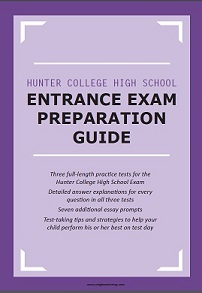Navigating the Digital SAT and ACT: Accommodations for Students with ADHD
/Preparing for standardized tests like the SAT and ACT is a daunting task for any student. For those with ADHD, the challenges can be even greater. Fortunately, both the Digital SAT and ACT offer accommodations to help level the playing field. This blog post will guide you through the process of obtaining these accommodations, what they entail, and provide key timelines and resources to ensure you’re fully prepared.
Understanding ADHD and Testing Challenges
ADHD, or Attention Deficit Hyperactivity Disorder, can affect a student's ability to focus, manage time, and process information, all of which are crucial skills for taking standardized tests. Common challenges include maintaining concentration during long test sessions, managing anxiety, and working efficiently under time constraints. Recognizing these difficulties, the College Board (for the SAT) and ACT, Inc. offer various accommodations to support students with ADHD.
Digital SAT Accommodations
The College Board, which administers the SAT, provides a range of accommodations tailored to meet the needs of students with ADHD. These accommodations aim to create an equitable testing environment by addressing specific challenges faced by these students.
Types of Accommodations
Extended Time: One of the most common accommodations, extended time allows students to take more time to complete the test. This is especially helpful for students who need additional time to process questions and formulate responses.
Extra and Extended Breaks: Students can take more frequent breaks or longer breaks than usual, which helps manage concentration and reduce fatigue.
Small Group Setting: Testing in a smaller group can minimize distractions and help students maintain focus.
Use of Assistive Technology: This can include text-to-speech software, word processors for essay writing, and other tools that can assist with reading and writing tasks.
Time of Day Adjustments: Some students may perform better at certain times of the day. Adjusting the test time to align with the student's optimal performance periods can be beneficial.
Application Process
To apply for accommodations on the SAT, students must submit a request through the College Board’s Services for Students with Disabilities (SSD) online system. Here’s a step-by-step overview:
Documenting the Disability: Obtain documentation from a qualified professional (e.g., psychologist, psychiatrist) that outlines the ADHD diagnosis and its impact on academic performance. This documentation should include a detailed report and recommendations for accommodations.
Submitting the Request: Work with your school’s SSD Coordinator to submit the request online. The school will provide relevant educational records and documentation to support the request.
Timeline: It's important to start this process early. Ideally, you should begin the application process at least seven weeks before the test date to ensure there is ample time for review and approval.
Reference Websites
ACT Accommodations
ACT, Inc. also offers a variety of accommodations for students with ADHD to ensure they have a fair opportunity to demonstrate their abilities on the test.
Types of Accommodations
Extended Time: Similar to the SAT, extended time on the ACT allows students additional time to complete each section of the test.
Stop-the-Clock Breaks: This accommodation permits students to take breaks as needed without the clock continuing to run, which can help manage concentration and stress levels.
Testing Over Multiple Days: Students with severe ADHD symptoms might benefit from spreading the test over multiple days to avoid fatigue and maintain peak performance.
Alternate Test Formats: Options include large print, braille, or a computer-based format with assistive technology features.
Private Room: Taking the test in a private room can help reduce distractions and create a more controlled environment.
Application Process
Applying for ACT accommodations involves a few steps similar to those of the SAT but with its own unique process through the ACT's Test Accessibility and Accommodations (TAA) system.
Documenting the Disability: As with the SAT, you need a professional evaluation documenting the ADHD diagnosis and its impact on test-taking abilities. This should include specific accommodation recommendations.
Submitting the Request: The request for accommodations is submitted through the TAA system, typically by the school’s testing coordinator. This process includes uploading the necessary documentation and educational records.
Timeline: Start the application process at least eight weeks before your planned test date. Early submission ensures there is enough time for review and, if necessary, to provide additional documentation or appeal a decision.
Reference Websites
Key Considerations and Tips
Early Preparation: Begin the accommodations request process as early as possible. Both the College Board and ACT, Inc. have specific deadlines, and starting early gives you time to address any issues that arise.
Work with Your School: Your school’s SSD Coordinator or testing coordinator can be a valuable resource in navigating the accommodations process. They can help gather the necessary documentation and submit requests.
Practice with Accommodations: Once approved, practice taking the test under accommodated conditions. This will help you become familiar with the extended time, breaks, and any assistive technology you’ll be using on test day.
Stay Informed: Keep an eye on the status of your accommodations request. Both the College Board and ACT, Inc. provide portals where you can check the progress of your application.
Appeal if Necessary: If your initial request is denied, don’t hesitate to appeal the decision. Provide additional documentation or clarifications as needed to support your case.
Final Thoughts
Securing accommodations for the Digital SAT or ACT can make a significant difference for students with ADHD, providing the support they need to showcase their true abilities. By understanding the types of accommodations available, navigating the application processes, and preparing effectively, students with ADHD can approach these tests with greater confidence and less stress.
For more detailed information and to begin the application process for accommodations, visit the official websites.
Navigating standardized tests with ADHD is challenging, but with the right accommodations and preparation, students can succeed and achieve their academic goals.

